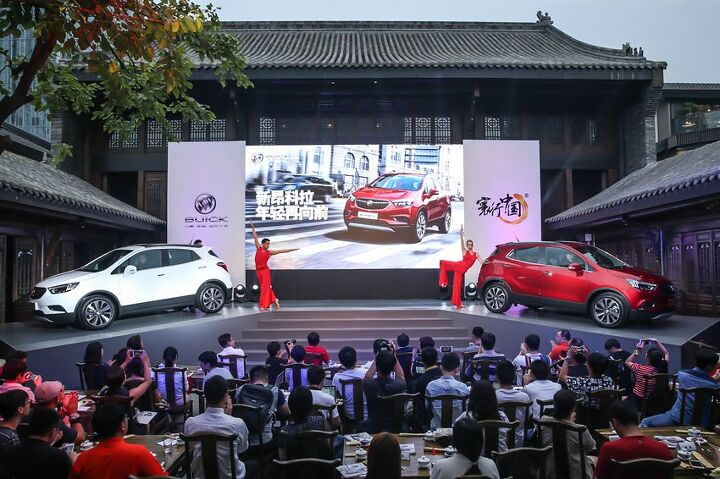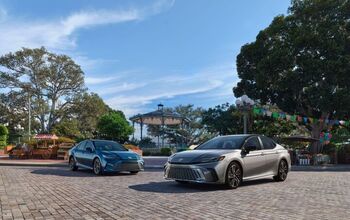Virus Doesn't Bode Well for an Already Ailing Market

Just as airlines around the world cut ties with China, automakers who do business in the coronavirus-hit country are scrambling to deal with the outbreak — delaying production, keeping employees at home, and crossing their fingers.
Any predictions that 2020 would be a better year than 2019 — a potential springboard year for automakers busily tailoring their lineups to better serve the rapidly evolving Chinese market — are now due for revision.
As the virus spreads throughout China (as of Wednesday, illness was reported in every region, but it remains centered in the country’s manufacturing heartland), automakers are being spurred into action.
Three days ago, the Detroit Three automakers all announced travel restriction to mainland China, with Fiat Chrysler banning all outside travel to the country. General Motors said only critical business decisions could get its executives on a flight, and even, then there’d be screening in place for the individual. Ford banned all travel to the outbreak’s epicenter, Wuhan.
The continued spread of the disease, the locking down of several population centers, and Wednesday’s raft of airline announcements should bring most travel into China to a halt. Luckily for companies, the country is currently celebrating its Lunar New Year, with the holiday scheduled to wrap up February 2nd.
What happens then is still a work in progress. Travel restrictions within the country could keep workers who left home for the holiday away from their workplace, and several jurisdictions have elected to just extend the holiday.
As reported by Automotive News, Volkswagen — a major foreign player in the Chinese market, plans to keep Beijing employees home for two weeks; its two joint ventures won’t restart production until February 9th and 10th, respectively.
BMW Group chose to extend the holiday until Feb. 9, assuming many workers wouldn’t be able to make it into work. A government-imposed shutdown will also see Tesla’s new Shanghai Gigafactory idled for at least another week and a half after the official end of the holiday. Ford, on the other hand, plans to have its joint venture plants up and running ASAP.
GM’s presence in the country is vast, and one of its facilities resides in Wuhan. Its Chinese factories won’t come online until Feb 9. The same goes for Toyota. According to BBC, PSA Group, Nissan, and Honda have announced plans to evacuate staff and their families.
For suppliers, the situation is no different. Parts giant Magna said it would idle its numerous plants for an unspecified period of time.
The outbreak, which could be just getting underway, will undoubtedly impact a market whose new vehicle sales were already predicted to contract a further 2 percent in 2020. Last year saw the country’s sales fall over 8 percent, continuing a trend that began in 2017. Of the Detroit Three, GM’s Chinese business fared best in 2019, which isn’t saying much. Sales sank 15 percent for the year — a far better result than Ford’s 48-percent drop and FCA’s 41-percent decline.
[Image: GM China]

More by Steph Willems
Latest Car Reviews
Read moreLatest Product Reviews
Read moreRecent Comments
- Add Lightness ...and I thought the Trump Towers were excessively pretentious.
- Daniel Tons of discounts out there on the eGMP's, just pick your style: Ionic 5/6, Kia EV6 and Genesis GV60. Personally, I got $20k off on a $60k MSRP GT-Line EV6 (only $7500 of that was a "rebate" from the state, the rest was Kia and dealer discounts). They are not only the same platform, but nearly identical mechanically other than slightly adjusted wheelbases. Find this one ugly? Look at Ionic 5 or EV6 instead, it's actually pretty cool how they came up with 4 distinct styles with basically the same car to fit many different tastes.
- Dave Holzman EVs will be ready for prime time when the chargers are dependable, and easy to use, when they can fill the battery in around 10-15 minutes, when there are sufficient numbers of them that people don't have to hang out for a half an hour waiting for a fast charger to be free, when chargers are widely available even in Nebraska, Wyoming, eastern Oregon, Nevada, Utah, the northern parts of Maine, New Hampshire, and Vermont, and within 10 miles of the start of the Tail of the Dragon, and when they get fixed pronto when they have problems.
- MaintenanceCosts The Supercharger network is something with much more growth potential than their actual car building operations, which has been marvelously run to this point and has a years-long head start on all its competitors, and Elon lays the whole team off?I don't know if it's distraction or the drugs, but he is not making good decisions and should not be CEO anymore.
- Dirk Wiggler I drive down the Palisades and near the George Washington Bridge I see FIAT housing complex (apartments, same font as the auto company). Seems like they tout energy/electric efficiency. I always wonder, 'what's that...is it really the same FIAT?'


































Comments
Join the conversation
Wife and I had it(still recovering). Weakest "flu" ever. Another OMG WW3!!! moment of overhype. Will be forgotten in a month. The usual.
So I guess this would be a bad time for Toyota to re-introduce the Corona?